To My Leaver-Mother
This page is available to subscribers. Click here to sign in or get access .

A left-behind daughter of the Philippines reflects on her mother’s honorable sacrifice: leaving her family behind to support them while working abroad.
Your finger dabbed my cheek to lift a fallen eyelash.
“Humiling ka,” you said. Make a wish.
I wanted to wish you would not leave us. I wanted to hear your luggage unzip, see your clothes hurl themselves back into the patinated mahogany cabinet in our shared room. I wanted to wake up the next day and find you by the stove, stirring a pot of l ú gaw for breakfast, the kitchen fogged up with the spicy twang of ginger, golden steam swirling around you.
I was twelve, and my breasts had just started to bloom. My class seatmates boasted with stories about how their mothers gifted them baby bras as they were nagdadalagá na , becoming young women. It sounded terrifying and exciting at the same time. But who would I talk to about these things if you were leaving?
You said you were going to work in the Middle East as a nurse. Over there, beyond the silver horizon , Tita Weng said, you’ll find the Middle East . [i] In my dreams, I was always running, almost reaching that silver horizon.
In my dreams, I was always running, almost reaching that silver horizon.
“Your Ma will send baby bras in Balikbayan boxes for you and Regine. Toblerone chocolates too!” Tita Weng said.
You blew the eyelash off the tip of your finger, and just like that, you were gone. The first time you left, we had just entered the year of the Snake. The Gold Snake, to be exact. My cousin Cheska, a Tsinoy, [ii] said that it was going to be an auspicious year. A year of change, of becoming better. Tsinoys believed people would make wise decisions that year. Perhaps they were right: on the 20th of January, the president of the Philippines, Joseph “Erap” Estrada, was removed from office after a revolution known as People Power 2 , following protests on the EDSA highway in Manila. [iii] His campaign song was a lie. All the neighborhood radio stations used to play it until I too started belting it out as I walked to school every morning: “Erap para sa mahirap!” “Erap for the poor!” When he was ousted, the adults believed the years of theft from the nation’s treasury would finally end.
“There will be more jobs,” Tita Weng said.
“Ma will come back and never leave again,” I said.
While there had been many surging tides of upheaval in Manila, the clamor in our household had a different quality on the 20th of January, as we celebrated not only my 12th birthday but also our town’s fiesta of San Sebastian. I woke up to the sound of chopping and the strong scent of onions and garlic being sautéed. Our neighbors were preparing their feasts in their backyards, and the hiss of large woks could be heard through the window. This year, like the last three years, our family could only afford a tray of pancit bihon, but our stomachs would be luggage-tight after visiting each of our neighbor’s houses and enjoying their banquets of crispy pata, caldereta, and kare-kare.
“Next year, when your Ma has saved some money in Oman, she’ll send a feast for your birthday and for the fiesta!” Tita Weng promised. But all I wanted was your home-cooked pancit bihon, the sour-tang of kalamansi squeezed all over it, and the green and orange slivers of sliced string beans and carrots topping the shiny glass noodles.
I ran to the fair just outside the village with my siblings and our neighborhood friends, past all the adults of our street gathered around the television, sipping gin and spooning pig’s brain s í sig into their mouths. At the fair, we were greeted by the sour sweat of townspeople playing Colour Games, flicking peso coins on prize boards. We headed to the Horror Train where Regine and I recoiled at the clanging of the tin walls, slapped by the palms of teenage “monsters” and “zombies,” their tattered shirts crimson with the “blood” of achuete sap. A tikbalang hopped onto the carriage where Regine and I were sitting, and the tunnel shook with our screams. The tikbalang pulled back his horselike mask to reveal the face of a teenage boy, with warm eyes and a slanted scar on his chin.
“Miss, may I get your phone number?” he smirked at us, and, in a fierce reflex, Regine’s fist boxed straight into his face. Our instinctive guardian against the perils of monsters and love. He fell with a thud that was drowned out by the passengers’ cries and the rattling of our train over the rusted tracks.
Regine’s fist boxed straight into his face. Our instinctive guardian against the perils of monsters and love.
I was twelve, my sister, eleven. For the first time, somebody called us Miss . But who could we tell about such thrills?
The year of the Gold Snake came and went. I could not tell if people’s decisions truly led them toward a more auspicious life. I wondered, though, Ma, if you were happy in Oman. What were you doing as my hysterical screams vibrated down the Horror Train tunnel? Or as I licked remnants of purple yam fiesta cakes off my palms? What about that Valentine’s Day of 2001? When every man in our village held the stem of a red rose, did you receive anything from Pa? Who was with you on the other side of that silver horizon?
Ma, tell me that loneliness and solitude are not the same. Loneliness is sadness, in a landscape that is always dark, gritted and scabbed by dust storms, one that is hard to escape. Tell me that solitude is more special than that: perhaps a chosen state.
Our situation is not entirely unique to us. Labor migration has been going on for many years. Tita Weng said many other Eraps have run our country after him. [iv] Growing up in the Philippines in the 1990s to 2005, our teachers familiarized us with the term “brain drain”: decades of emigration of highly-trained Filipinos has been such a loss to the country. [v] Some who worked in low-skilled jobs abroad despite their professional qualifications in the Philippines return deskilled.
They have to go because they have no choice. Who would put food on the table? our teacher once asked.
Ma, tell me that loneliness and solitude are not the same. Even though the adults say migrants do not have a choice, you still chose to leave, right? Tita Weng said you chose not to be with us so you could provide for us. So I want to convince myself that your solitude is an act of sacrifice. And isn’t leaving the most honorable sacrifice, Ma?
That sacrifice hurls migrants like yourself into landscapes that are not only lonesome but also dangerous. [vi] I used to think that you betrayed us by leaving. A snake is slang for a person who betrays you , an English teacher once told me. But I want to think of you as a snake who symbolizes not treachery but remedy. Just like the gold snake entwined around the rod wielded by the Greek god Asclepius, the image of healing. The symbol that is usually pinned onto nurses’ chests, or engraved on doctors’ rings.
“But you’re not a snake,” Cheska said. “You’re a dragon. The New Year of 1989 started in February and not in your birth month, January.” I kicked an empty can. Who wants to be a mythical dragon, Ma? I am a snake! For I see you in that symbol: the one who sheds skin to become more resplendent, the one who leaves to rebuild. In Oman, you worked at Nizwa Hospital, learning how to speak Arabic in a month.
“ Salaam Alaikum ,” you taught me once in an international call. “Peace be unto you.”
“Alaikum-Salaam” (And peace be unto you), I learned to reply.
I scribbled Arabic phrases in my notebook and practiced counting in Arabic during breaks at school. Wahid. Itnan. Talata. I’d look up at a patch of blue sky beyond the tall molave trees, past the reverberation of kuliglig, and imagine you in the glinting desert dust, uttering the words that I was practicing. Perhaps in language, we can meet.
Whenever you greeted me with peace, my reply would always be, Peace unto you too . But sometimes I wonder how much peace really exists in a transnational family like ours? When one El Ni ño I fried some tilapia, and Regine ended up convulsing and vomiting, did you sleep in peace then? How about that time you found out that Pa, in his drunken state, had beaten up an electrician who came to cut off our electricity, leaving the man’s left eye bruised and as swollen as a caimito fruit, did you work in peace then?
I thought you were coming back to fix things. Once, I ran toward loud knocking on the door but did not find you on the other side. Two bulky policemen stood in front of me, blocking out the daylight. Regine and I had to answer to them as they looked for Pa. “If your mother’s working abroad, why can’t your father even pay the bills?” one of them asked.
Left-behinds like us must grow up fast, must persevere especially in the absence of peace.
Tell me, Ma—that left-behinds like us must grow up fast, that we must persevere especially in the absence of peace. [vii] To perform what our parents could not. And to tell our parents only the good things about our lives, leaving out the not-so-good so that even if we’re far apart, we could give them peace .
So whenever you called us, we would say how bright our summer was, how the guava fruits in the yard turned from yellow to pink and started dropping to the ground with such overripe hope. I never talked about bad things. Once, a girl who sat behind me in class kept kicking my chair and sticking chewing gum in my hair. When our teacher made us clean toilets and she kept “accidentally” poking my leg with a bowl plunger, the rubber mouth making a wet sucking noise on my ankles, I jumped on her, tugging her long black hair, until the tiled walls echoed with our classmates’ shouting. I yanked on her collar, exposing her budding chest to the whole class. Since, I never felt my chair shake from her kicking again.
“Peace be unto you too.”
Ma, teach me more Arabic phrases, tell me your story. How you were sent by your hospital to the mountains of Jebel Kawr in Oman, on a medical mission. How you rocked on the back of a camel as the sun baked the desert in gold. You stopped by a river and kneeled to see your own reflection, lowering your hands to the ice-cold waters from the mountain peaks. You filled up your gourd bottle, drank, and filled it up again.
Later that night, you reached a small village carved from rocks, and the full moon bloomed in the sea of dark linctus in the spoons you coaxed sick children to swallow. The air cooled as you wrapped a bandage around a girl’s sprained foot. You hoisted her onto your lap, pointed at a far-off herd of white antelopes. I want to convince myself that by tending to those children, you tended to us from a distance.
Peace be with you.
Wolverhampton, UK
Editorial note: “Poetry and Nursing in the Filipino Diaspora,” Ante’s interview with Marianne Chan, appeared earlier this summer on the WLT Weekly.
[i] Tita means “auntie.”
[ii] Tsinoy refers to Chinese-Filipinos.
[iii] The first People Power Revolution had taken place fifteen years beforehand, when Ferdinand Marcos was ousted from power and exiled. Estrada was charged with plunder and later convicted.
[iv] The Philippines has become one of the top sources of migrant laborers for the world and has been described by the BBC News as the country “training their people to leave.” Every day, five thousand Filipinos leave to work abroad, and a large proportion of these migrants are women. In a report published in 2016, United Nations Women stated that the number of hired women migrant workers or WMWs reached its peak in 2014, when 75 percent of newly deployed workers were female.
[v] Some Overseas Filipino Workers are professionals (i.e., teachers, nurses, etc.) who go to other countries (i.e., Hong Kong, the Middle East, Japan) to work in a lower-skilled employment such as being nannies, entertainers, etc.
[vi] Joanna De Mafelis, a Filipino maid in Kuwait, was found mutilated in her employer’s freezer in 2018. In 2014 Filipino nurses working in a private nursing home in Wiltshire, England, were rescued following abuse, racism, and exploitation. In a report published by The Independent , one of the Filipino nurses, Nemia Labergas, was quoted saying that ten of her colleagues were given accommodation miles from their workplace, in a four-bedroom house with only one bathroom. She told the reporter, “They said that we were used to living like rats in the Philippines.”
[vii] Left-behind children is a sociological term that describes children left by their parents (sometimes to their grandparents, sometimes alone) as the latter work in other cities or countries in order to provide for the family. In 2018 there were nine million left-behind children in the Philippines; their parents were Overseas Filipino Workers.

Romalyn Ante is a Filipino-British author. She is co-founding editor of harana poetry and a poetry editor at Ambit magazine. Her honors include the Poetry London Prize , Manchester Poetry Prize, Society of Authors Foundation Award, among others. Her debut collection, Antiemetic for Homesickness (Chatto), was named Poetry Book of 2020 by the Poetry School and the Irish Times . It is longlisted for the Dylan Thomas Prize and shortlisted for the Jhalak Prize 2021.

Recommended for You

The Street Kiss

Home in the Face of Grief

When Dogs Could Talk: Among Words in a State of Grace
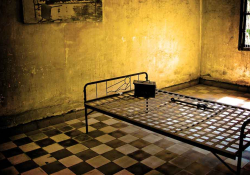
Do Not Repeat

No Book Left Behind
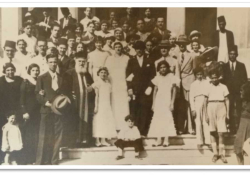
Claiming My Egypt
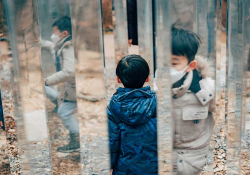
Will These Stories Ever Be the Same? A Korean Translator’s Misgivings

The Braschian Wave: All the Solitude of an Empire in a Bottle Thrown into…
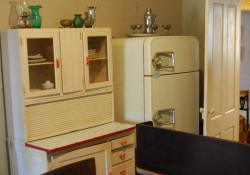
Mothers Inc. ( an excerpt )
WLT Weekly Categories
Audio Poetry
Black Voices
Book Reviews
Creative Nonfiction
Cultural Cross Sections
Current Events
Eye on Culture
From the Road
In Memoriam
Intern’s Picks
Literary Tributes
News and Events
On Translation
Pandemic Dispatches
Sound It Out
The Once Over
Travels in Literature
Words for Thought
E-NEWSLETTER
Join the mailing list.
Join the WLT Weekly email
Recent Posts

Editor’s Choice: Audio Poetry for National Poetry Month

Different Coin, Equal Sum: Translating the Kopilka Poetry of Witness and Antiwar Protest

The Liturgy and Anxiety of Ordinary Lives: In Conversation with Rigoberto González

Popular Tags

My mother's journey as an overseas Filipino worker
With millions of Filipinos working abroad, one woman reflects on overcoming the distance that grew between her and her mother.

Angeli Gabriel and her mother, Marlyn Henning, take pictures after the family moves to Tennessee in 1999. Mother and daughter share similar haircuts and floral prints.
“You had pigtails and didn’t speak any English at all,” my mother says, telling me the story of our move to the United States. It was probably the thousandth time I’d heard this story, but I didn’t mind. My mother, like many Filipinos, is an excellent storyteller—very expressive. She’d emphatically move her hands, shimmy her shoulders, and even do impersonations.
But I couldn’t see any of that this time because we were talking on the phone. My only visual of her was the word “Mom” glowing in white text on my phone’s black screen. I could still imagine every motion she was making and every glint in her eye, as I heard her smiling through the phone.
These calls, where I’d envision my mother’s mannerisms from memory, are how many of our interactions go these days. Years ago, I moved to Washington D.C. for graduate school and work, hundreds of miles from my parents’ house in Tennessee. Trips home became more difficult and less frequent.

Marlyn Henning, several months pregnant with daughter Angeli Gabriel, stands on the steps of her work dormitory in 1986. While pregnant, she still worked as a nurse at Abdulla Fouad Hospital in Dammam, Saudi Arabia.

Grandmother Rosevida Pasana holds Angeli Gabriel and cousin Jeffrey Pasana at her home in Manaoag, Philippines. Unlike other Filipino grandchildren, they called their grandmother “Nanay”, which actually means “mom” in Tagalog.
For my mother and me, distance has always been a constant. But as the decades went by, the veneer of normalcy began to fade as the sacrifices of my mother and our family in the Philippines came to the fore. ( Why 10 million Filipinos work overseas. )
It is quite common in Filipino families for parents and children to live apart. Many parents travel abroad to places like Japan, the United Arab Emirates, Germany, the United States—anywhere they can go to make a living—even by taking care of other people’s children. Today, an estimated 10 million Filipinos are working overseas. They send home an estimated $27 billion a year in remittances.
Of the many Filipino professionals that travel overseas to work, some of the most well-known are nurses. My mother is one of those nurses.
FREE BONUS ISSUE
Our story began in 1955, when my mother was born in the rural town of San Jacinto, Philippines. Her father, a bus driver, was the sole earner in their household, struggling to make his earnings stretch and support his wife and six children.
The stories my mom tells about this time in her life take on a somber tone as she talks about family meals that only included rice, water, and salt. Her father would try to persuade his children to eat, constantly promising meat in their next meal, knowing that it was a promise that he could rarely keep.
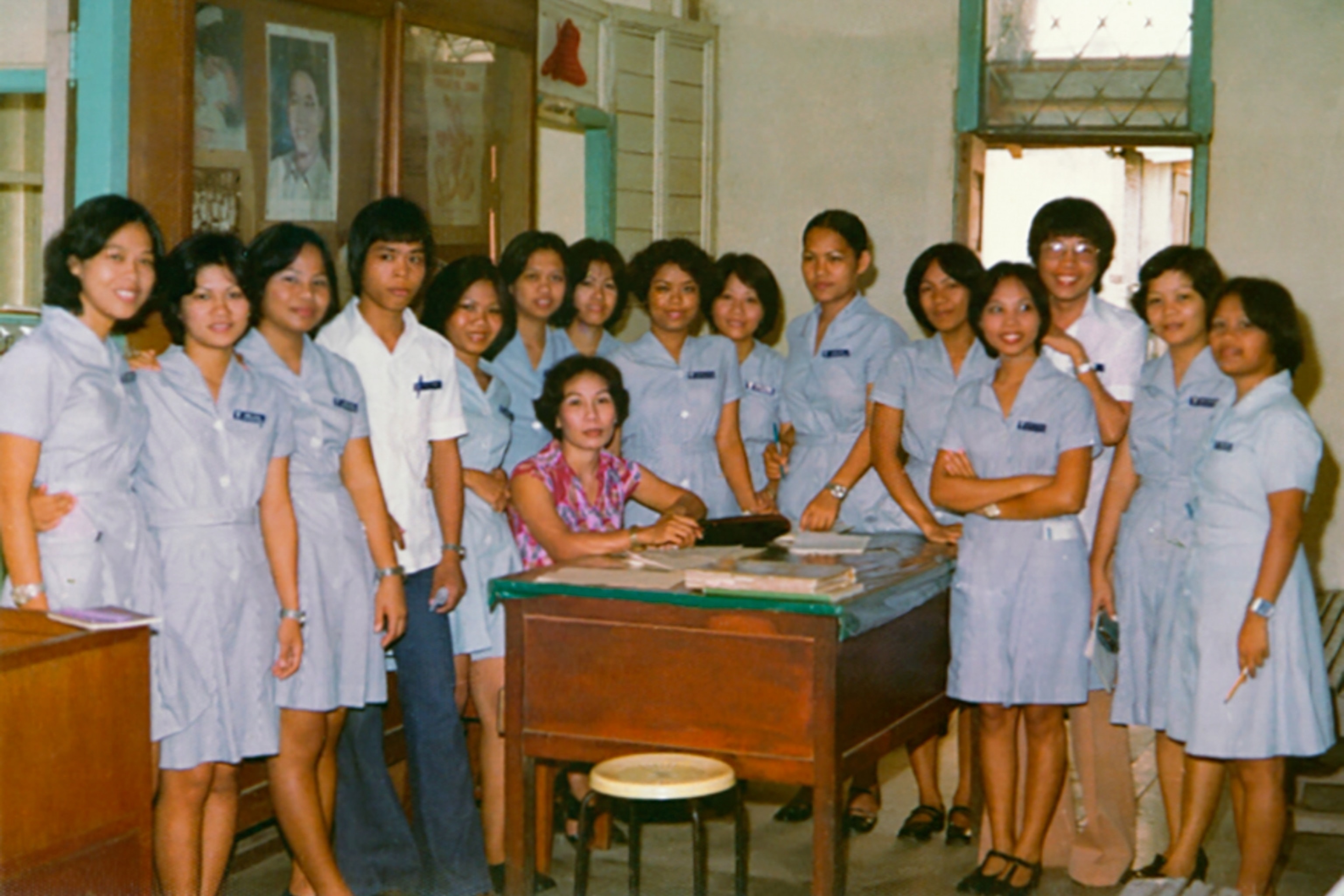
Marlyn Henning (far left) in 1977 during her senior year of nursing school. The class was Public Health Nursing and involved going to rural areas to provide treatment.
But by the time my mother, the youngest daughter, was a teenager, my grandparents had saved enough money to invest in something that would change their future: sending my mom to nursing school.
Nursing was not my mother’s dream career at the time. As a teenager, she loved to draw and sew, and she even dreamt of a career in fashion and design. But my grandparents asked my mom to consider nursing. My grandparents had seen for other families that nursing helped provide the financial stability their family desperately needed.
They enrolled my mother in Lyceum-Northwestern University. My mom graduated as a registered nurse in 1978.
Then in 1983, after years of gaining hands-on medical experience, my mother joined the ranks of many Filipino nurses who came before her. She accepted an offer to work abroad, at Abdulla Fouad Hospital in Dammam, Saudi Arabia.
She recalls the day she left for the job. At the airport in Manila, Philippines, she prepared to hop on a plane for the first time. Her father was sad to see her leave, and my grandmother cried incessantly. It would be a long time before they’d see their daughter again. ( See millions of Filipino workers return home for the holidays. )
As part of my mother’s work contract, she could only return to the Philippines once a year. Each stint home lasted for about 45 days, enough to catch up on what had happened with family in the past year, before having to reset the clock and return overseas to work.

Angeli Gabriel, is being held by grandmother, Rosevida Pasana. Here, she and grandfather Amado Pasana (seated) are having dinner with several family members at their house in Manaoag, Philippines.
Like many other Filipinos working overseas, my mother sent the majority of her pay back to her family. Her parents needed her support as they grew older and as my grandfather became unable to work as much. Some of her siblings fell into financial hard times. While working abroad separated my mom from her family for years, it allowed them to leave a life of poverty and gain a better, more stable life.
Growing up, I remember seeing photos of my mom in Saudi Arabia. She would be posing with friends and co-workers, and she’d often wear either pressed, white nursing outfits or casual 80s wear that showed off her petite figure. But a few other photos had her posing in a large, flowing mumu—showing off a baby bump.
In 1986, she returned home to give birth this baby: me. I was her first child and the start of her own little family. But about four weeks after giving birth, per her work contract, she had to return to Saudi Arabia. ( Follow Filipino workers as they figure out life in the gulf countries. )
I was left in the care of my mom’s parents and one of her brothers. They raised me as if I were their own, until they were granted an opportunity they couldn’t pass up: moving to the United States.
They then left me in the care of one of my mom’s sisters and her husband. I would grow so close to them that I’d call them “Mommy” and “Daddy”, rather than the usual Tita meaning aunt or Tito meaning uncle. I’d see their children, who were technically my cousins, as my brother and sister.
My aunt would send my mother cassette recordings of me talking or singing as a toddler. My mom said she’d cry every time she listened to them. And when she would take her yearly trip back home to see me, she was met with a baby that cried because she didn’t recognize her.

Soon after Marlyn Henning and Angeli Gabriel arrived in the United States, they went to Universal Studios in Los Angeles, California. They took a photo with Fievel, a cartoon character from the immigrant story “An American Tail”.
My mom knew that her hands were tied. She felt that she couldn’t leave her job because so many family members back home were depending on her. That was the responsibility she bore, even if it meant only being able to see her own daughter once a year.
This part of our story is one my mom doesn’t tell that often. But when she does, her usually animated demeanor fades. I hear a tightness in her throat as she tries to speak. When she talks about this in-person, the only thing I can really do is give her a hug, because this period in our lives was just one of several times to come when she and I were separated.
After a few years, when our family was in a better place financially, she decided to move back home. She knew she wasn’t going to find a nursing job that paid as well as the one she had in Saudi Arabia, but she was willing to make the sacrifice so that she and I could be a family.
But rather than staying in the Philippines, she decided to set her sights on America. Her goal soon came to fruition when she was given an offer to work at Physician and Surgeon Hospital in Midland, Texas.
It was like a dream come true: she would be sponsored to immigrate to America and have guaranteed employment. The catch: she’d have to work a certain number of hours and pass an exam in order to stay employed and in the United States; if she failed, not only would she be sent back to the Philippines, but she’d have to pay back every cent invested into her travels.

When Gabriel was ten years old, she became a Raiders cheerleader for Fairview’s local peewee cheerleading squad. She would later cheer during middle school and high school, become captain of those squads. She later was offered a chance to cheer for college.
My mom decided to take that gamble and up the stakes. She only agreed to go if she could take her daughter with her. Her terms were accepted.
You May Also Like

Why 10 million Filipinos endure hardship abroad as overseas workers

What’s it like to be an immigrant in America? Here’s one family’s story.

What exactly is a Yankee?
So there we were, on a plane to America. My mom was ready to start a new life with her daughter, dressed in pigtails.
But soon after we arrived to this new country, we were split apart yet again.
My mother needed to focus on her job. Our future and ability to stay in the U.S. depended on it. So, she sent me to live with family in Long Beach, California, where I was reunited with two familiar faces: my grandparents.
My grandfather was working as a janitor, and my grandmother stayed home to care for me. We went to church every Sunday, joining a Catholic congregation made up mostly of Filipinos. We also visited their senior citizen community center and catch up with other Filipino elders. I have fond memories of my grandparents on the dance floor, holding each other close, as they’d done for decades in the Philippines and now, in America.

In 2002, Nanay and Tatay went to live with their daughter and granddaughter in Fairview, Tennessee. They would often attend “The Music” on Friday nights, where they would dance to live country and bluegrass music.
Although life in the U.S. was not as easy as they’d hoped, they recognized how many opportunities it could still hold for me – even if it came at a cultural cost.
This was most evident in their determination to have me learn and speak English. They, along with my mother, believed that the best way to ensure this was to stop speaking to me in our native Tagalog and our dialect Pangasinan and to only speak to me in English.
At one point, I not only learned how to speak English, but I also learned how to pick up the phone and call my mom. I’d ask her, “Ma, why am I the only one here who doesn’t have a mom?”. According to my grandmother, I was frustrated by how my mom could never visit. I’d point at a U.S. map during a call with her and say, “Texas is there, California is here. See? It’s not that far.”
Years later, on Mother’s Day 1993, my grandparents and I parted ways, and my mother and I reunited. She had passed the requirements for us to remain in the U.S., and we were able to become a family once again.
I was sad to leave my grandparents, but this reunion did grow our family by one. While in Texas, my mom met and fell in love with a fellow nurse at the hospital, and she brought him to meet me.

When Gabriel was about eight years old, she and her parents Dan and Marlyn Henning (far right) took a road trip from Nashville, Tennessee to Long Beach, California to visit family.
Originally hailing from Oklahoma, my stepdad introduced me to another side of American culture. I have fond memories as a child, waking up to songs by the Beach Boys or George Strait playing from the kitchen. I’d find my dad, a burly, 6-foot-tall white guy, tending to homemade sausage gravy simmering on the stovetop. When he’d see me, he’d start doing silly, dad-joke-level dance moves—anything to make me laugh.
His lightheartedness was accompanied by a deep respect for my family’s struggles. He recognized the pain of my mother’s and my near-constant separation, and he did what he could to reacquaint us after years of being apart.
Change was afoot once again, but this time, we experienced it together.
We moved to Tennessee for my father’s job, and we ended up establishing roots in a small town called Fairview. Unlike Long Beach, which was a bustling town of grey, city blocks, Fairview was calm, quiet, and lush with green. Our first home there was nestled in the woods.
To acquaint themselves with this new town, my parents decided to partake in one of Fairview’s popular activities: attending the high school’s football games. But on their first visit, my mother recalls looking around the bleachers and noticing another difference from Long Beach—everyone at the game was white. Knowing that I would stand out in this community with my black hair and brown skin, she couldn’t help but wonder how I would fit in.

Gabriel poses with childhood friends during her birthday party at a roller skating rink. Her parents gave her her first tennis racket that day and set Gabriel on a path that eventually led her to play for the high school tennis team.
Turns out that my mother had nothing to worry about. Classmates took an interest in my background and life in the Philippines, and they and their families treated me and my parents with respect and kindness. I grew up virtually clueless that I was any different from my blonde, blue-eyed, and freckled friends. I even picked up a little Southern lilt.
While my mother and I were finally together again, establishing roots in this new hometown, we began to drift once again. The distance we’d encountered time and again in a geographical sense began to manifest itself culturally.
My mother developed expectations of me that were rooted in traditional Filipino values, whereas I had expectations of myself that were rooted in American values. For example, what she perceived as disrespectful behavior, I perceived as standing up for what I believed in.
Despite our cultural disagreements, while I was in high school, my mother decided to bring us further into the American fold by having us become citizens. When I ask her about this decision, she brings it back to opportunity. “At the time, you had to be a citizen to apply for scholarships,” she said. “I wanted you to have all the education opportunities.”

Gabriel and her mom visit the Grand Canyon for the first time. The family took a three-day road trip from Nashville, Tennessee to Los Angeles, California, and stopped to see some of the country’s greatest sites.
I remember quizzing my mom about U.S. history to help prepare her for the citizenship test. We’d often sit on the front porch of our house to do this. It was usually dark, since we’d get together after she came home from work, and we’d flip through the list of questions by the warm yellow glow of the porch light.
Who was the first president of the United States? What do the stars and stripes on the American flag mean? My mother, educated in the Filipino school system, had to learn another country’s history from scratch.
Then, in 2002, she took and passed the text, and we became American citizens together.
In addition to learning about U.S. history, my mom and I learned about one crucial component of becoming Americans: You must have the ability to handle the distance from your home country, from loved ones, and from yourself.
My mother took ten years to afford our first trip home, after that initial flight in 1991 took us further away from the Philippines in ways we never expected. She spent years apart from her parents, her siblings, and her own daughter, missing countless milestones in their lives.
Now in her sixties, my mother has scaled back the hours she works and spends her new free time with my dad and herself, having for the first time the space to reflect, appreciate, and heal from the many turns her journey took.
Although she and I are once again apart, with her in Tennessee and me in D.C., we do our best to maintain a closeness we’ve been deprived of for so long.
While it would be ideal to be by her side as she tells her many stories, watching her as she motions through the air and seeing the expressiveness of her eyes, something as simple as a phone call, where I could hear her smile resonating through the line, is still as priceless a connection.
Related Topics
- FAMILY LIFE
- IMMIGRATION

Which cities will still be livable in a world altered by climate change?

California’s ‘Ellis Island’ was designed to keep Asian immigrants out

What is the Feast of the Seven Fishes?

How an obscure 1944 health law became a focus of U.S. immigration policy

Dementia has no cure. But there’s hope for better care.
- History & Culture
- Environment
- Paid Content
History & Culture
- History Magazine
- Terms of Use
- Privacy Policy
- Your US State Privacy Rights
- Children's Online Privacy Policy
- Interest-Based Ads
- About Nielsen Measurement
- Do Not Sell or Share My Personal Information
- Nat Geo Home
- Attend a Live Event
- Book a Trip
- Inspire Your Kids
- Shop Nat Geo
- Visit the D.C. Museum
- Learn About Our Impact
- Support Our Mission
- Advertise With Us
- Customer Service
- Renew Subscription
- Manage Your Subscription
- Work at Nat Geo
- Sign Up for Our Newsletters
- Contribute to Protect the Planet
Copyright © 1996-2015 National Geographic Society Copyright © 2015-2024 National Geographic Partners, LLC. All rights reserved

OFW moms share stories of joy, pride and homesickness from across the world
By Johanna Añes-de la Cruz, The Philippine STAR Published May 07, 2021 11:13 pm Updated May 10, 2021 11:36 am
2.2 million. According to 2020 data from the Philippine Statistics Authority (PSA), there are 2.2 million OFWs scattered across the globe. A majority of this staggering number are women, most of whom are mothers, and many, if not all, chose to trade off precious time spent with their kids so they can provide for their education, and give them a better shot at life.
We are no strangers to OFW stories: the pain of separation from their kids, the devastation after discovering a husband’s infidelity, the constant pressure of having to send money back home.
These themes, after all, are a staple in many an OFW narrative, but OFW moms are also bearers of stories teeming with joy, triumph, and pride .
For Mothers’ Day, PhilSTAR L!fe talks to five OFW mothers based in different parts of the world to celebrate some of their life’s biggest milestones, and honor their stories as women, mothers, sisters, heroes.
Elanie Laguimun, OFW for 9 years, the US
‘The thought of being able to send them to good schools gives me so much pride and joy.’

“I work as a private caregiver. My specialization is Alzheimer’s cases.” For the past nine years, Elanie has spent most of her waking hours taking care of older people who are not even related to her.
“The challenge of being an OFW is homesickness. For almost seven years, I cry most of the time when I think about my children, especially the two younger ones whom I left when they were just 11 and 3 years old.”
She says that to this day, it breaks her heart knowing that she missed important events in their lives like their graduation and birthdays, “It crushes my heart every time I think about all these moments, but I have no other option but to stay strong so I can provide for their education.”
Elanie beams as she shares that despite being away from her kids, seeing her two older daughters graduate from college gives her immeasurable joy. She admits that she could probably not have done it if she chose to stay in the Philippines.
She reminds fellow OFW moms to “be strong. Focus on your goal. And most of all, be steadfast in your faith in God. Keep praying. Have constant communication with your children and with your family.”
Michelle Daguso Miranda, OFW for 10 years, Australia
“My biggest achievement is keeping my family together.”
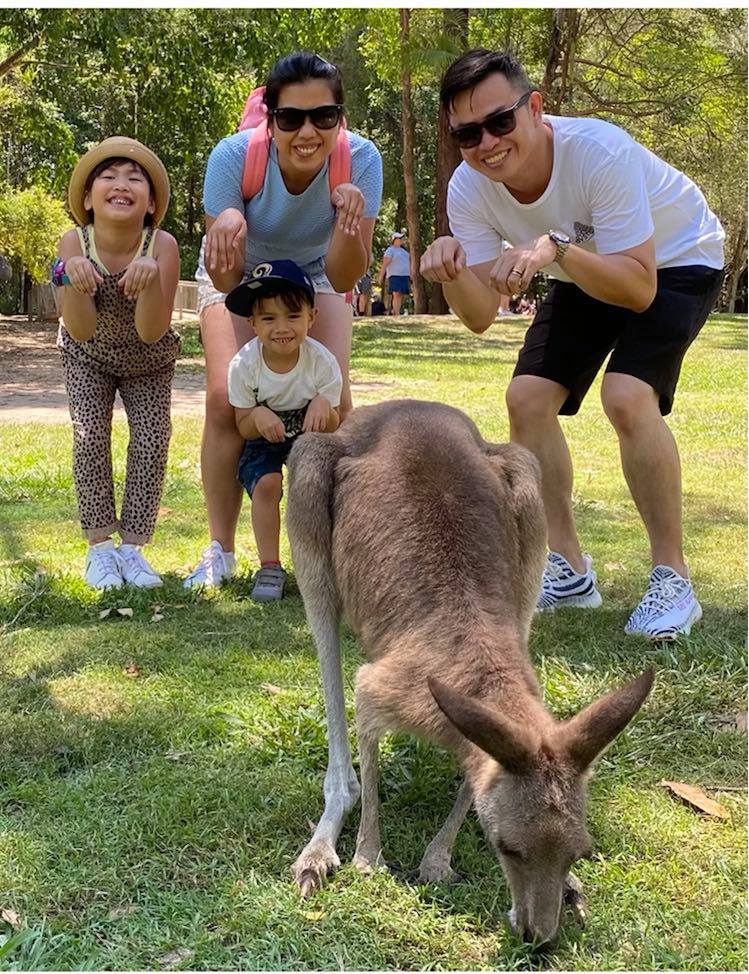
For more than a decade, Michelle has worked tirelessly as an OFW in Singapore and in Australia where she and her family are now based. “I support families with children with special needs and help them achieve their goals,” she says of her job in Sydney.
She recounts that the lack of support and homesickness caused her much distress in her first few years abroad. “Good thing, nowadays, it is easier to communicate through video calls.”
Michelle knows that OFWs work too hard and too often they forget to take care of themselves. She reminds them, “You should never neglect self-care and always prioritize your well being. Join a support group, advocate work-life balance, and above all pray for guidance and strength.”
Myziel Castillo, OFW for 30 years, Japan
“Napagtapos ko ang mga kapatid ko.”

Myziel has been an OFW for as long as she can remember, and has done all sorts of work, from being a bento cook to moonlighting as a fruit farmer. She shares how the most challenging aspect of being away from home is having to do everything. “You have no relatives who will assist you like in the Philippines.”
She considers herself luckier than most OFW moms because she has never been separated from her only child, Kota. “I have been with my son the entire time. I raised him and did not miss a lot (of memories) for which I am very thankful.”
However, she was also a mother to the siblings she left behind in the Philippines. For many years, she worked several jobs, pulling all-nighters and waking up before the crack of dawn just so she could send her younger siblings to school.
“Achievements? Having been able to get my siblings to finish school, one of whom earned a master’s degree in Australia.” She shares that she derives so much happiness from knowing where her siblings are now.
She adds, “Trust God, put him at the center (of your life), set your goals and focus on achieving them. Pamper yourself from time to time. You need to be happy for you to be able to wholeheartedly help other people.”
Leni Bacay, OFW for 22 years, Italy
“Ipinagmamalaki kong napagtapos ko sa pag-aaral ang mga anak ko.”

Leni has worked as an OFW for more than two decades, taking on caregiving work in Israel and Italy. “Sa kasalukuyan, nag-aalaga ako ng matanda from 7 a.m. to 7 p.m.”
Like most OFWs, she left her family behind so she could give them a better life.
She says that she feels the happiest when she is able to send money to her loved ones back home. Aside from being able to send her kids to college, Leny was able to buy a parcel of land and start a small business in the Philippines.
Marlyn Sasaki, OFW for 25 years, Japan
“Kaligayahan ko ang makitang maayos ang paglaki ng aking mga anak.”

“Marami na rin akong napasukan na trabaho,” shares Marlyn. “Like electronic parts assembly. Tapos ‘yong tinatawag dito sa Japan na izakaya o maliit lang na kainan, at the same time pwede rin uminom ng alak. Nagluluto at nagseserve din.”
She recounts the different challenges she faced when she was starting out as an OFW, “Sa umpisa hindi naman ako marunong pang mag-Nihonggo at iba ang kultura nila.” She now speaks Japanese fluently and has adapted to life in Japan, “Siyempre sa pagdaan ng panahon nakaka-adopt ka na rin sa kanilang culture at isa pa maraming mga kaibigan sa church. Malaking tulong ito sa akin.”
What she considers her biggest joy is seeing how her children were able to grow up into decent and responsible adults
Marlyn admonishes fellow OFWs to not send all their earnings back home. “Mag-ipon kayo. Huwag ipadala lahat ng pera mo para pag-uwi mo may pera ka rin.”
A few more pieces of advice for OFW moms
We also talked to Fr. Rogelio “Rodge” Cardenas, CM, Superior of the Congregation of the Mission in Japan, who has served as counselor and friend to many OFWs in Japan for the past 13 years.
He says OFWs should also try to avail of “free language classes offered by local municipalities. Be creative, try learning new skills, study online to improve yourself.”
To battle loneliness, he advises: “Don’t forget to pray to God. Join communities like a church community and volunteer in church activities. Find time to relax and go out with good friends. Call your family and friends using your social media if you need it.”
TAGS: ofws moms
Johanna Añes-de la Cruz, The Philippine STAR
Johanna (Mok to most people) is known to friends and familiars as the ultimate “raket queen.” She works full time as a communications specialist at a government agency while moonlighting as a writer, teacher, and social media manager.

Overseas Filipino Workers: The Modern-Day Heroes of the Philippines
Bayani is the Tagalog term for “hero.” In the Philippines, a bayani is someone who is courageous, humble, and selfless. They pursue causes that are greater than themselves, such as those impacting a community, a nation, or the environment. Overseas Filipino Workers (OFWs) is a term referring to Filipino migrant workers, individuals who have left their homes to work abroad and provide comfortable lives for their families. Referring to these workers, former President Corazon Aquino coined the phrase ‘Bagong-Bayani’ in 1988. OFWs are the country’s modern-day heroes because they not only boost the Philippines’ economy through remittances but are figures of resilience. OFWs endure homesickness, personal sacrifices, and horrible working conditions in order to support their families back home.
By the Numbers
The Philippine Statistic Authority estimates that about 1.83 million OFWs worked abroad from April to September 2021. The same data reveal that about “four in every ten” OFWs work low-status or ‘ elementary ’ jobs, such as street vendors, construction and factory workers, cleaners, domestic helpers, and agriculture laborers. A majority of OFWs work in Asia, specifically Saudi Arabia, United Arab Emirates, Hong Kong, Kuwait, Singapore, and Qatar.
Because of their major contribution to the growth and development of the Philippine economy, OFWs are revered as the nation's economic heroes. According to data released by the Central Bank of the Philippines, remittances from OFWs reached a record high in December of last year: from the previous all-time high of US$34.88 billion, it rose by 3.6 percent to a record high US$36.14 billion in 2022.
“OFW remittances, at new record highs on a monthly basis, are a bright spot for the Philippine economy in terms of spurring consumer spending, which accounts for at least 75 percent of the economy, and in turn, support faster economic growth,” Rizal Commercial Banking Corp. Chief economist Michael Ricafort said .
Furthermore, most OFWs are Filipina women. The numbers clearly show that women dominate the workforce, accounting for approximately 60 percent of OFWs. According to data from the Overseas Workers Welfare Administration, at least 18,002, or 75.05 percent of the 23,986 cases of abuse and other incidents involving workers in the Gulf Cooperation Council that were reported last year included female OFWs. On the other hand, male OFWs were involved in only 5,984 cases, or 24.95 percent of all cases.
These women are disproportionately more likely to suffer from terrible working conditions, as they are often subjected to abuse, excessive work, little pay, rape, or worse, being killed by their foreign employers. The International Labour Office published a working paper titled Philippines: Good Practices for the Protection of Filipino Women Migrant Workers in Vulnerable Jobs explaining that “Gender-based discrimination intersects with discrimination based on other forms of ‘otherness’ – such as non-national status, race, ethnicity, religion, economic status – placing women migrants in situations of double, triple or even fourfold discrimination, disadvantage or vulnerability to exploitation and abuse.”
In 2020, there were 23,714 documented cases of contract violations involving the maltreatment of OFWs, according to data provided by the Philippine Overseas Labor Offices, and approximately 5,000 of these cases were reported from Middle Eastern countries. According to the Philippine Information Agency, Filipina women who work in the Middle East are subjected to the “ kafala ” system, which ties foreign workers to their employers. Under this framework, employers could easily lock domestic workers inside their houses and seize their phones, passports, and visas until the expiration of their contracts.
The Human Rights Watch (HRW) published a comprehensive report titled “ ‘I Already Bought You’ Abuse and Exploitation of Female Migrant Domestic Workers in the United Arab Emirates,” which explains real-world examples of how the UAE’s kafala system of visa sponsorship binds migrant employees to their employers and how the exclusion of domestic workers from labor law protections exposes them to abuse.
The report included interviews with 99 female domestic workers in the UAE between November and December 2013. 22 of the 99 domestic helpers questioned by HRW claimed to have experienced physical abuse at the hands of their sponsors.
“They slap me in the face and kick me. They have a stick for you. If I make a small mistake they would hit parts of my body—back legs, back, and head. Sir would slap or punch me in the face. If they come back from the mall and I am not finished they would beat me,” Shelly A., a 30-year-old Filipina worker said. “They would say, ‘If you had done work then we won’t hit you.’ ”
Injustices in Kuwait
Currently, there are over 268,000 OFWs who live and work in Kuwait with 88 percent of them working as domestic helpers and 73 percent of them being female. According to the Philippine Department of Migrant Workers (DMW), there were over 24,000 cases of abuse and violation against OFWs in 2022—a significant rise from 6,500 in 2016.
It is a significant sacrifice to work abroad. Being physically and emotionally thousands of miles away from one’s family for an indefinite period is challenging, isolating, and suffocating. Rowena, a 54-year-old Filipina worker in Bahrain found herself feeling “trapped” due to canceled flights to the Philippines because of the COVID-19 pandemic as well as being underpaid by her employer. “I don’t want to make trouble. I want to go home,” Rowena said .
Beyond this, many OFWs also work abroad without knowledge of the future or the dangers they may encounter in a foreign country. Even worse, a harsh truth of working abroad is that a number of OFWs return home as dead bodies.
In January of 2023, Jullebee Ranara , a Filipina domestic helper living in Kuwait, confided in her family over the phone that she was terrified of her employer's 17-year-old son. The 35-year-old appeared to have vanished by the next day, which prompted her friends in the Gulf state to share their worries about her disappearance on social media.
Less than 24 hours later, on Jan. 21, 2023, her body was found dead, with burnt remains and a smashed skull found beside a desert near Al-Salmi Road.
Ranara was discovered to be pregnant after an autopsy, and DNA samples taken from the unborn child were confirmed to match the accused, who is the 17-year-old son of Ranara’s boss. After being apprehended, the 17-year-old perpetrator confessed to his crime.
Since 2018, there have been at least four murders of OFWs in Kuwait that have garnered national attention, including the case of 29-year-old Joanna Demafelis , whose body was kept secret in a freezer in an abandoned apartment for nearly two years. Her employers, a Syrian and a Lebanese couple, received death sentences for the murder of the victim.
In 2019, 47-year-old Constancia Lago Dayag was discovered dead after being sexually abused and beaten to death by her boss. The same year, 26-year-old Jeanelyn Villavende passed away from serious injuries inflicted by her boss, who was ultimately given a death sentence for the murder.
“These are only the high-profile ones,” Migrante International chairperson Joanna Concepcion told VICE World News. “There are other cases that are not visible. The public is not made aware of the real gravity of the rampant abuses faced by Filipino domestic helpers in Kuwait.”
Actions taken by the Philippine Government
A week after the discovery of Jullebee’s body, her remains were returned to her grieving family in Las Piñas, Philippines. Without delay, Philippine President Ferdinand “Bongbong” Marcos Jr. attended Jullebee’s wake and promised to provide the deceased’s family with all aid possible.
“I just wanted to offer my sympathies to the family and to assure them that all the assistance that they might need for the family and for whatever else, that is my promise to them,” Marcos Jr. remarked . “Their child made that sacrifice to work abroad because she has dreams for her family here.”
Recently, the DMW issued a deployment ban on new and aspiring OFWs in Kuwait, following the increasing reports of work mistreatment, including the horrific murder of Ranara.
“In order to strengthen the protection of the rights of Overseas Filipino Workers (OFWs) in Kuwait, particularly workers who are most vulnerable to abuse and exploitation, action on the applications of first-time agency-hire domestic workers bound for Kuwait is temporarily deferred effective immediately,” the DMWs said in a statement on Feb. 8, 2023.
Senator and Committee on Migrant Workers Chairperson Raffy Tulfo proposed a total deployment ban in Kuwait. “We can enter into bilateral agreements but our terms should be clear and unequivocal. If there are violators to such agreements, we have to prioritize the welfare of our overseas Filipino workers and act at the soonest possible time. Make these violators accountable and liable without concession and pursuant to our laws and international conventions,” Tulfo said in a senate inquiry.
The DMW was also tasked with working with the Department of Foreign Affairs to communicate to the Kuwaiti government the "sentiments and concerns" of the Filipino people regarding all recurrent incidents of physical and financial abuse, failure to pay monetary benefits, as well as murder committed against OFWs after the deployment ban went into effect.
The deployment ban was not well received by migrant advocacy groups, who claimed it would not provide a permanent solution to the issues surrounding labor migration. They claimed that placing bans for an extended period of time would encourage OFWs to turn to illicit means and consequently put themselves at risk for human trafficking in their desperation to find jobs abroad.
“What about the already-deployed Filipinos? Are there any steps being taken to protect them and make sure they do not suffer the same fate as Julleebee and the others?” Concepcion said to Maritime Fairtrade News. “These problems cannot be resolved with a deployment ban. The Philippine government has imposed bans many times before, but lifted them soon after when the particular cases of abuse or murder had been resolved by the courts and the perpetrators punished by death penalty or long-term imprisonment. When the deployment restarts, the abuses also start all over again.”
Much Needed Reform
OFWs often serve as the backbone of their families back home. Based on the results of a survey published by the Social Weather Stations , they found that 7 percent of Filipino households have an OFW who helps support the family. In addition, seventy-five percent of households frequently receive money from their OFW family members.
It would be difficult and inconsiderate to discourage or ban OFWs from going abroad for work. To promote a better quality of life for OFWs, the Philippine government must enact concrete policies aimed at protecting the welfare of Filipino workers. Advocacy groups, such as Migrante International are urging for reforms, including the abolition of the kafala system, which has resulted in complete employer control over domestic workers and OFWs.
For Concepcion, the country’s over-reliance on OFWs remittances is equivalent to the perpetuation of the violation and murder of Filipino workers. She believes that a viable solution to this issue involves ending the government’s labor export program and creating decent jobs domestically through meaningful land reform and national industrialization.
“The government’s determination to continue its labor export policy is totally misguided. What it should do is implement immediate measures to protect our domestic workers and OFWs abroad and long-term measures to generate decent jobs in the Philippines,” Concepcion said . “We need to end the government’s Labor Export Program and instead ensure that more jobs are created at home. Filipinos won’t have to leave the country and their families to risk their lives abroad if they have gainful and secure employment here.”
It is clear that OFWs live up to the definition of a bayani and are now considered heroes of the Philippines. However, under the shiny title of ‘bagong bayani’ lies a dark and unfortunate reality. Numerous Filipino workers suffer from various injustices including being overworked, underpaid, abused, raped, and even worse, murdered. The only way OFWs can truly be safeguarded is if the Philippine government enforces concrete and actionable policies. With this, OFWs could avoid the potential death sentence of working abroad and have the chance to be treated as they deserve to be: as modern-day heroes.
Laurinne Jamie Eugenio
Recent posts, the united states of europe and liberalism in the 21st century: interview with beate meinl-reisinger, chairwoman of austria’s neos party.
A New Vision for Thailand: Interview with Pita Limjaroenrat, Member of the Thai House of Representatives and Former Leader of the Move Forward Party
Israel, Gaza, and Operation Swords of Iron: Interview with Sharren Haskel, Member of the Israeli Knesset
Medical Servitude: The Other Side of Cuban Medical Diplomacy
Remember Us: A Peek Into Childhood Autism in Ghana
You Might Be Interested In
Defying dictatorships: an interview with garry kasparov, on atlantic alliances and autocrats: an interview with jeanne shaheen, the artificial intelligence revolution in an unprepared world: china, the international stage, and the future of ai.
- COVID-19 Full Coverage
- Cover Stories
- Ulat Filipino
- Special Reports
- Personal Finance
- Other sports
- Pinoy Achievers
- Immigration Guide
- Science and Research
- Technology, Gadgets and Gaming
- Chika Minute
- Showbiz Abroad
- Family and Relationships
- Art and Culture
- Health and Wellness
- Shopping and Fashion
- Hobbies and Activities
- News Hardcore
- Walang Pasok
- Transportation
- Missing Persons
- Community Bulletin Board
- GMA Public Affairs
- State of the Nation
- Unang Balita
- Balitanghali
- News TV Live

A daughter’s spoken word poetry for OFW mom goes viral
Iloilo native Iva Jamelarin penned and performed a spoken word poetry for class, but such was the truth – and the feels – enveloped in her words that she went viral.
Iva is a daughter of Eva Jamelarin, an overseas Filipino worker who went abroad to work as a domestic helper when Iva was only three years old.
Like most OFWs, Eva felt the need to leave home to be able to provide for her family. She was only 16 when she got pregnant, remaining dependent on her parents for financial support.
Eva first went to Singapore and when her contract expired, she flew to Hong Kong. All throughout, she sent money home, sent letters too, and for good measure, sent toys and packages.
Soon, her labor bore fruits: they now have their own house, her husband Ike also has his own tricycle and even manages their piggery. Two of their kids will be graduating from college, with a degree in Criminology and Education.
But distance has its effect, and soon Eva felt her children pulling away from her. The kids have become closer with their lola. Iva barely talks to her mother when she calls and her sister Ivee blames her need for attention on Eva.
So imagine Eva’s surprise when she saw the viral video of her daughter’s performance.
“Sa mga anak ko, si Iva ang hindi expressive sa feelings tapos may ganoon palang tula,” Eva said on “Kapuso Mo, Jessica Soho.”
Iva's spoken word poetry indeed touched millions of people so the school asked her to perform again in their recognition day. What she didn’t know was that her mother already flew back to the Philippines to watch her in person.
Read her touching poem below, and please have a tissue ready.
Nay, 'Yan ay Pangako Written by: Iva Claire M. Jamelarin
"Para ito sa inyong kinabukasan. Titiisin kahit mabigat man sa pakiramdam Tutulak palayo para makaahon sa kahirapan Wala man ako sa inyong paglaki, Sa aking puso, kayo ay mananatli
Masakit man sa akin ang malayo ay kakayanin ko Sa kadahilanang ayaw kong maranasan niyo ang mga naranasan ko Mahal na mahal ko kayo. Para sa inyo 'to 'Yan palagi ang tumatakbo sa isip ng OFW
Magtatatlo ako nang umalis ang nanay ko Apat kami, at ako ang bunso Sa mura kong edad ay kinaya ko Dahil ang pangako ni nanay, "Babalik ako."
Pinanghawakan ko At panghahawakan ko Dahil naiintindihan ko
Magtatatlo ako nang umalis ang nanay ko Pinatulog lang kami at saka tumungo Ang daming tanong na sa aking isipan ay tumatakbo Tulad ng, "Kung 'di kaya ako natulog, mananatili ka ba?" "Kung nakita mo kayang mulat ang aking mga mata at lumuluha, tutuloy ka pa ba?" "Kung nalaman ko bang mag-aabroad ka at makikiusap akong' wag ka nang umalis, papayag ka ba?"
Pero kahit 'di ako natulog Kahit mulat ang aking mga mata at lumuluha Kahit makiusap akong wag ka nang umalis Ay wala na ‘kong magagawa dahil buo na ang 'yong pasya
Nakita mo man ang unang tawa ko Nakita mo man ang unang iyak ko Narinig mo man ang unang salita ko Nasaksihan mo man ang unang lakad ko Ang unang pagkadapa at pagbangon ko Ang unang beses na kumain ako
Pero wala ka sa unang araw ng pagpasok ko sa eskwela Wala ka sa unang pagpupulong kasama si maestra Wala ka nang unang sinabitan ako ng medalya Wala ka sa pagtatapos ko sa elementarya Hindi ako nanunumbat Pero 'Nay, kailangan kita. Pero pipilitin kong intindihin Dahil para sa'min kaya nandiyan ka
Ang hirap lumaki na wala ka sa tabi ko Walang nanay na mag-aalaga sa'kin tuwing nagkakasakit ako Walang magtuturo sa'kin tuwing hirap na ako sa assignments ko Walang yayakap sa'kin tuwing may napagtatagumpayan ako Pero ramdam kita dahil nandito ka, at mananatili ka sa Puso ko
Gusto ko ang mga pag-ugoy mo Gusto ko ang pagsuklay mo ng buhok ko Pagpili ng idadamit ko Pagluluto ng ulam ko Yakap at halik mo Miss na miss na kita Gusto ko na ulit makulong sa bisig mo
Ilang taon na ba kitang hindi nakakasama? Dalawang taon? Higit pa? Kaya tuwing umuuwi ka ay sinasalubong kita ng mainit na yakap Dahil gusto kong sulitin ang mga panahong muli kang makasama Kapalit ng panibagong dalawang taon mo sa ibang bansa
Gusto kong magtampo Ilang okasyon na ba ang wala ka sa tabi ko? Kaarawan, graduation, bagong taon, pasko Oo, nakukuha ko ang lahat ng gusto ko Pero hindi materyal na bagay ang nais ko Kundi ikaw, sa bawat okasyon at yakap ako
Kaya pipilitin kong palitan Ang bawat butil ng pawis mo Sasabayan ko ang sakripisyo mo
Sa darating na anim pang taon Hindi na mabigat na maleta ang bitbit ng mga kamay mo Hindi na passport at ticket papunta sa kung saang lupalop ng mundo Dahil sasabayan kita sa hakbang mo Hahawakan ko ang kamay mo habang paakyat tayo sa entablado't makukuha mo na ang patunay ng mga sakripisyo mo
— LA, GMA News
- Subscribe Now
Strength in sacrifice: OFW women in the UAE
Already have Rappler+? Sign in to listen to groundbreaking journalism.
This is AI generated summarization, which may have errors. For context, always refer to the full article.
In the United Arab Emirates (UAE), having a Filipina nanny is considered a status symbol.
She is recognized for her caring, nurturing ways and natural love for children.
Some sociologists call this a transfer of affection or a caregiver’s way of dealing with not being able to give her own children love and affection by rechanneling her attention to her ward.
An honorable profession
“When it comes to being a nanny or caregiver, the Filipina is the best in her class. She’s the top of the line. It is an honorable profession. As a caregiver, she is entrusted with the most vulnerable in the home: the young and the elderly,” said Ambassador Grace Princesa, Philippine Ambassador to the UAE.
The 2012 Commission on Filipinos Overseas (CFO) estimates show that there are more than 900,000 Filipinos in the UAE. More than 75% of them are temporary workers and around 22% are irregular migrants – those who are not properly documented, do not have valid residence or work permits, or who are overstaying.
“About 10% of Filipinos in the UAE are working as domestic workers or nannies,” Princesa added.
Between mothers
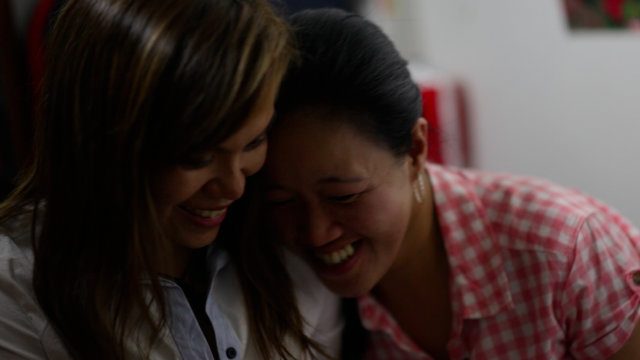
When she opened it and saw the pictures of her two children, Joy and Jim, and her mother, she looked up at me and asked, “ Sa akin na po ito ?” (Are these mine now?) I gave Norma Brion the envelope, vaguely telling her I had brought her something from the Philippines.
“ Opo. Dala po namin yan para sa ‘yo .” (Yes. We really brought those for you.)
In the 8 years that Norma Brion has been working as a nanny and domestic helper in Abu Dhabi, she has gone home to the Philippines to be with her children only twice.
“ Nang iwan ko sila, ang liliit pa nila. Tignan mo na sila ngayon, ga-graduate na ng college si Joy,” she said running her hand over the photos.
(When I left them, they were so small. Look at them now. Joy is about to graduate from college.)
At that point, I was no longer the journalist and Norma was no longer the respondent. We were just two mothers. (Read more about Norma and her children here )
Veiled stigma
“Nakatapos ako ng business wala naman opportunities sa Cotabato. Yun mga lalaki, lumalaban o nagtatanim. Yun mga babae wala. So naisipan ko mamasukan na lang sa Kuwait. Ni hindi ko nga alam kung ano o saan yun.”
(I graduated with a business degree but there are no employment opportunities in Cotabato. The boys go off to fight or farm, but there is nothing there for the women. So I thought of looking for domestic work in Kuwait. I didn’t even know where Kuwait is.)
“ Hindi ko na naisipan mag-try mamasukan sa Manila. Sabi nila mas mahihirapan ako dun kasi masama tingin nila sa Muslim, mga terrorista daw ,” Farida said.
(I didn’t even try to find domestic work in Manila. They told me it would be harder for me there because Muslims have a reputation for being terrorists.)
Statistics show that in the provinces of ARMM, Maguindanao and CAR, women migrants outnumber their male counterparts. (READ: Muslim women: ‘We are not limited because we wear a hijab’ )
According to the Philippine Statistics Authority (PSA), for every 10 women who work abroad, there are 11 men.
However, gender distribution of OFWs is very different for SOCCSKARGEN, Cagayan Valley, ARMM and CAR (Cordillera Administrative Region). In these areas, from 2008-2010, for every 3-5 male OFWs, there were 10 female OFWs.
The Yaya Sisterhood
“I come from a family of 13. We’re all named after famous Filipino celebrities,” said Nida Velonza, laughing. “Me, I’m named after Nida Blanca.”
When Nida first began working as a nanny in Dubai, she kept thinking about her sisters back in the Philippines who were struggling to make ends meet.
“My sister, Gloria and her husband, only had soup to eat because they had to give the meat to the kids. Mayra’s husband did not work. Maricel got pregnant and her boyfriend left her. My other sister, Perla, was not married and did not have kids but she was working at a dead-end job in a factory.”
Nida then decided to bring her sisters one by one starting with her Ate Mayra. Then, she and Mayra pooled funds together to bring Alma, then Gloria, then Perla and finally Maricel to Dubai.
Currently, there are 6 of them working in Dubai as nannies. At the time this photo was taken, one sister, Alma, was in the Philippines on holiday.
“There are a lot of people who look at us and are envious. When we get together at the park or attend community functions on our days off, we make it a point to come in the same color,” giggled Mayra.
“When we call our parents every week, they ask to speak to us one by one and check attendance. We charge those who are absent AED 20!” said Perla, piping in.
“I’m happy – we’re happy. My sisters and I have each other here to depend on and to go to. When we eventually go home to the Philippines, we might put together a small business like a grocery or something. We don’t know yet but it will still be us sisters helping each other out. Like they say, blood is thicker than water,” said Nida.
When wards become children
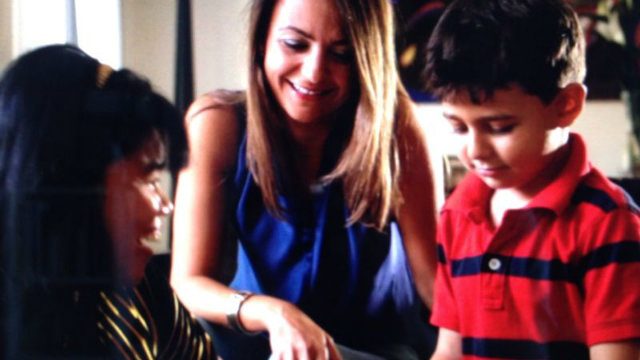
Nida Velonza’s only son, Nicos, was 2 months old when she left him. “I was still breastfeeding him,” she recalled.
She had been working as a nanny for many years at that time, but was hard-pressed to find economic opportunities in the Philippines. “There was nothing for me and my son there and my husband was of no help. I had to leave,” she said.
Nida has been taking care of her ward, Alps, since he was 6 months old. Alps is now 6 years old and almost the same age as Nicos.
“Everything I could not do for Nicos, I do for Alps. I sometimes think I don’t know my son. I don’t what he favorite color is, what his favorite food is – the things I know about Alps. I love and care for someone else’s child but can’t be there for my own son.”
Catching up
Socorro Magramo has a lot of catching up to do.
She spent 18 years in the monastery and has spent almost the same number of years taking care of other people’s children.
“I’m 58 years old now. It’s too late for me to have kids of my own because of my age,” she smiled. “But I want to have a partner, in this lifetime if possible…maybe soon,” she added, laughing good-naturedly.
“Now, all I want is reward myself for the long period of taking care of other people, other children, and helping my nieces and nephews finish their studies.”
“Actually I have a boyfriend, we’re in a long-distance relationship,” said Socorro with a twinkle in her eye. – Rappler.com
This photo essay is part of the series “Who Takes Care of Nanny’s Children?”, a multi-media reporting project that follows the path of feminized migration starting from areas in the Philippine where most OFW families live to Dubai, UAE and Paris, France. For more stories about OFWs and Pinoys abroad visit www.rappler.com/balikbayan
This project is supported by the Pulitzer Center on Crisis Reporting in Washington, D.C. under the Persephone Miel Fellowship.
Add a comment
Please abide by Rappler's commenting guidelines .
There are no comments yet. Add your comment to start the conversation.
How does this make you feel?

Related Topics

Ana P. Santos
Recommended stories, {{ item.sitename }}, {{ item.title }}.
Checking your Rappler+ subscription...
Upgrade to Rappler+ for exclusive content and unlimited access.
Why is it important to subscribe? Learn more
You are subscribed to Rappler+
- Engineering
- Write For Us
- Privacy Policy

Essay on My Mother

Here we have shared the Essay on My Mother in detail so you can use it in your exam or assignment of 150, 250, 400, 500, or 1000 words.
You can use this Essay on My Mother in any assignment or project whether you are in school (class 10th or 12th), college, or preparing for answer writing in competitive exams.
Topics covered in this article.
Essay on My Mother in 150 words
Essay on my mother in 250-300 words, essay on my mother in 500-1000 words.
My mother is my greatest inspiration and the most important person in my life. She is loving, caring, and selfless. Her guidance and support have shaped me into the person I am today. She works tirelessly to create a nurturing home environment, and her wisdom and advice have helped me navigate life’s challenges. Her love is unconditional, and she is always there for me, celebrating my successes and comforting me during tough times. Beyond being a mother, she is also my best friend, someone I can confide in and share memorable moments with. I am grateful for her presence in my life and the profound impact she has had on shaping my character and values. My mother is truly irreplaceable, and I cherish every moment I spend with her.
My mother is the most important person in my life. She is my role model, my support system, and my best friend. Her unconditional love, care, and guidance have shaped me into the person I am today.
My mother is a selfless individual who always puts the needs and happiness of her family before her own. She works tirelessly to ensure that our home is a place of comfort and warmth. Her nurturing nature and compassionate heart make her the backbone of our family.
She is a source of wisdom and guidance. Whenever I face challenges or need advice, she is always there to listen, offer her perspective, and guide me towards the right path. Her words of encouragement and belief in my abilities give me the strength to overcome obstacles and strive for success.
My mother’s love is unwavering and unconditional. She is my biggest cheerleader, celebrating my achievements and supporting me during difficult times. Her faith in me fuels my determination and motivates me to pursue my dreams.
Beyond being a loving mother, she is also a friend. We share laughter, tears, and countless memorable moments together. I can confide in her, knowing that she will listen without judgment and provide comfort and understanding.
In conclusion, my mother is an extraordinary woman who embodies love, strength, and selflessness. Her presence in my life is a blessing, and I am grateful for the love and support she provides every day. She is not only my mother but also my role model, my confidante, and my source of inspiration. I am forever thankful for her unconditional love and the profound impact she has had on shaping my life.
Title: My Mother – A Beacon of Love, Strength, and Inspiration
Introduction :
My mother is a remarkable woman who holds an irreplaceable place in my life. Her unwavering love, unwavering support, and selfless nature have shaped me into the person I am today. In this essay, I will delve into the qualities that make my mother extraordinary, the profound impact she has had on my life, and the invaluable life lessons she has taught me.
Loving and Nurturing Nature
My mother’s love is boundless and unconditional. From the moment I entered this world, she has showered me with affection, care, and tenderness. Her warm embrace and comforting words have always been a source of solace. Whether it is a scraped knee or a broken heart, my mother’s presence brings comfort and reassurance.
She creates a nurturing home environment where love, support, and understanding prevail. She listens attentively to my thoughts, concerns, and dreams, providing guidance and encouragement. Her ability to empathize and show compassion has instilled in me a deep sense of empathy toward others.
Sacrifice and Selflessness
My mother’s selflessness is awe-inspiring. She always puts the needs and happiness of her family before her own. She sacrifices her own desires and ambitions to ensure our well-being and happiness. Whether it is waking up early to prepare breakfast, working long hours to provide for us, or staying up late to help us with our studies, she does it all without complaint.
Her selflessness extends beyond our immediate family. She actively participates in community service, volunteering her time and efforts to help those less fortunate. Her acts of kindness and generosity have taught me the importance of giving back to society.
Strength and Resilience
My mother embodies strength and resilience. She has faced numerous challenges and adversities with unwavering determination. From personal setbacks to financial hardships, she has never let them dim her spirit. Instead, she faces each obstacle head-on, showing me the power of perseverance and resilience.
Her strength is not just physical but also emotional and mental. She remains composed and calm in difficult situations, providing a steady support system for our family. Her strength serves as a guiding light during turbulent times, reminding me to stay strong and never lose hope.
Support and Guidance
My mother is my rock, offering unwavering support and guidance in every aspect of my life. She is my confidante, the person I turn to when I need advice, comfort, or a listening ear. Her wisdom and insight have helped me make important decisions and navigate through life’s challenges.
She encourages me to pursue my passions and dreams, instilling in me the belief that I can achieve anything I set my mind to. Her belief in my abilities has boosted my self-confidence and fueled my drive to succeed.
Life Lessons and Values
Through her actions and words, my mother has imparted invaluable life lessons and instilled in me essential values. She has taught me the importance of honesty, integrity, and compassion toward others. She emphasizes the significance of hard work, perseverance, and never giving up.
Her commitment to education has emphasized the value of knowledge and continuous learning. She has taught me the importance of empathy, understanding, and acceptance, fostering an inclusive mindset.
Conclusion :
My mother is my greatest inspiration and the epitome of love, strength, and selflessness. Her unwavering support, guidance, and nurturing nature have shaped my character and values. She has taught me important life lessons, provided a strong foundation, and instilled in me a sense of resilience and determination. I am forever grateful for her presence in my life, and I cherish every moment spent with her. My mother’s love is a constant source of inspiration, reminding me to always strive for greatness and to be a compassionate and caring individual.
Essay on Good Mother for Students and Children
500+ words essay on good mother.
It is a common saying that God could not be present everywhere so he made a mother. The saying is also true as the status of the mother is equivalent to God. She is the one who gave us life and made us stand on our own feet. My mother is the idol of selfless love and ever-ready for me despite being tired. My mother is the one on whom I can completely rely on. She is the one who will never say no to our wishes. She never lets us feel the difference in love and showers any time. My mother is like the sun that chases out all darkness and gives the light of happiness and love upon me.

Definition of a Good Mother
It is difficult to define a good mother in a few words. However, in very simple words I can say that a good mother is the one for whom her child is her world. There are many qualities which I see in her which makes her the world’s best mother. She loves me strongly and deeply without any condition. Apart from all this she also takes care of me with great responsibility.
Thus she is the statue of forgiveness. She forgives each and every mistake of mine and also ensures that I realize my mistakes with responsibility. A good mother does every effort to make her child one in a million. She sacrifices every comfort of her life for the comfort of her child.
Get the huge list of more than 500 Essay Topics and Ideas
Qualities of a Good Mother
There are certain natural qualities which already get inherited into a woman on acquiring motherhood. Some qualities of a mother are as follows:
Responsible
Acquiring motherhood comes with great responsibility. The responsibility of taking care of the child before and after birth is one of the most necessary qualities of a mother. She is the one who takes care of the child since birth.
Selfless Love
A mother will always shower her children with her love without anything in return. She always loves her children selflessly in spite of their mischiefs. Her love for her children always remains the same irrespective of her child’s age.
A mother should always be supportive of their children. She should always stand strong beside her children in all of their ups and downs. So, she should be always there for supporting her children in their decisions and interests.
This is the quality which every mother should inculcate on acquiring motherhood. The high amount of patience is a must for a mother with a growing child especially.
A mother should always be empathetic for her kids. As her care is the most need for a child.
Why My Mother is Important in My Life?
Her importance could be easily understood from the fact that the first word uttered from the mouth of a child is ‘mama’. She is the source of my life and the reason for my existence. My mother is the backbone of my family. Because she binds the whole family with unity.
She gives me the confidence to face the world and motivate me to achieve success in life. She is the only one who will never have any ill thoughts against me. A good mother acts like a sculptor who molds her children into beautiful sculptures.
Mother: The First Teacher and Guide of a Child
She is the one who started my schooling at home and became my first and lovely teacher. She taught me behavioral lessons and true philosophies of life. She gave birth to me after bearing lots of pain and struggle but in turn, she is always giving me love. In fact, there is no love in this world which is so lasting, strong, selfless, pure and devoted. She is the one who brings lights in my life by removing all the darkness.
My mother is the holy creation of God and a source of providing life to me. She is a sacred statue of selfless love, sacrifices, forgiveness, and patience. She is the guiding soul who helps me always to progress on the right path and achieve success in my life.
I, as her child, will always do my best to make her happy and comfortable all the time especially when she becomes old. It is our responsibility to bestow her with the same amount of love, care and understanding as she did with us when we were young.
Customize your course in 30 seconds
Which class are you in.

- Travelling Essay
- Picnic Essay
- Our Country Essay
- My Parents Essay
- Essay on Favourite Personality
- Essay on Memorable Day of My Life
- Essay on Knowledge is Power
- Essay on Gurpurab
- Essay on My Favourite Season
- Essay on Types of Sports
Leave a Reply Cancel reply
Your email address will not be published. Required fields are marked *
Download the App


Essay on Role of Mother in Our Life
Students are often asked to write an essay on Role of Mother in Our Life in their schools and colleges. And if you’re also looking for the same, we have created 100-word, 250-word, and 500-word essays on the topic.
Let’s take a look…
100 Words Essay on Role of Mother in Our Life
The importance of mothers.
A mother plays a crucial role in our lives. She is our first teacher and friend. From teaching us how to walk, talk and behave, to instilling values, a mother’s contribution is immense.
Unconditional Love
A mother’s love is unconditional. She always puts her children first, sacrificing her own needs and desires. This love shapes our character, making us compassionate and kind.
Our Guide and Mentor
Mothers guide us through life’s challenges, offering wisdom and advice. They provide emotional support, boosting our confidence and self-esteem.
In conclusion, a mother’s role is irreplaceable. She shapes us into the individuals we become.
250 Words Essay on Role of Mother in Our Life
The quintessence of motherhood.
The role of a mother in our lives is profound, multifaceted, and irreplaceable. She is the primary architect of our world, shaping our perceptions, values, and behaviors. From nurturing us in the womb to fostering our growth in society, a mother’s influence is omnipresent and enduring.
Mothers as Nurturers
Mothers are our first teachers and caregivers. They imbue us with fundamental qualities such as compassion, empathy, and resilience. Their love and care form the bedrock of our emotional development, fostering a sense of security and self-worth.
Mothers as Role Models
Mothers also serve as role models, exemplifying virtues like patience, perseverance, and selflessness. Observing their actions, we learn the importance of integrity, respect, and responsibility. Their strength in adversity instills in us courage and determination.
Mothers as Guides
Mothers guide us through life’s complexities. They help us navigate the maze of social norms, cultural traditions, and moral dilemmas. Their wisdom and experience provide us with invaluable insights, enabling us to make informed decisions.
Mothers as Catalysts for Growth
Finally, mothers are catalysts for our growth. They encourage our dreams, foster our talents, and challenge our limits. Their unwavering faith in our potential propels us to strive for excellence and realize our aspirations.
In conclusion, the role of a mother transcends the boundaries of mere caregiving. It encompasses nurturing, modeling, guiding, and stimulating growth, making her an indispensable figure in shaping our lives. The essence of motherhood is indeed a blend of love, sacrifice, and wisdom that leaves an indelible imprint on our being.
500 Words Essay on Role of Mother in Our Life
A mother’s role in our lives is immeasurable, transcending the realms of physical and emotional boundaries. She is the embodiment of love, care, and sacrifice, and her influence shapes us from our first breath to our last moments. This essay explores the multifaceted role of a mother in our lives.
The Bearer of Life
The role of a mother begins even before a child is born. She is the vessel that carries a new life, providing a nurturing environment for the fetus to grow and develop. Beyond the physical ordeal of pregnancy and childbirth, a mother also bears the emotional weight of anticipation and worry for her unborn child’s future.
The First Teacher
A mother is often the first teacher in a child’s life. She introduces her child to the world, guiding them through their first steps, first words, and first experiences. The lessons imparted by a mother are not confined to academic knowledge. Instead, they encompass moral values, social etiquette, and life skills, forming the foundation of the child’s character and worldview.
The Emotional Anchor
A mother’s love is unconditional and serves as an emotional anchor for her children. She is a constant source of comfort, support, and encouragement, fostering a sense of security and belonging. Her compassion and empathy help her children navigate the turbulent waters of emotions, guiding them towards emotional maturity.
The Catalyst for Growth
A mother also plays a crucial role in her child’s personal and professional growth. She motivates her children to strive for their goals, instilling in them a sense of ambition and resilience. Her faith in their abilities boosts their self-confidence, allowing them to overcome obstacles and achieve success.
The Role Model
A mother is a role model, setting an example for her children through her actions, decisions, and attitudes. She teaches them about respect, kindness, and empathy, not through words, but through her interactions with others. Her strength and resilience in the face of adversity inspire her children to be strong and resilient themselves.
The Guardian of Tradition
In many cultures, mothers are the custodians of traditions and customs. They pass on cultural heritage and ancestral wisdom to their children, ensuring the continuity of their lineage and identity. This role of a mother helps children understand their roots and develop a sense of belonging.
In conclusion, the role of a mother in our life is profound and multifaceted. She is a life-giver, a teacher, an emotional anchor, a catalyst for growth, a role model, and a guardian of tradition. Her influence shapes us, making us who we are. As we grow and evolve, the lessons and values imparted by our mothers continue to guide us, serving as a compass in the journey of life.
That’s it! I hope the essay helped you.
If you’re looking for more, here are essays on other interesting topics:
- Essay on Need of Discipline in Life
- Essay on My Purpose in Life
- Essay on My Life
Apart from these, you can look at all the essays by clicking here .
Happy studying!
Leave a Reply Cancel reply
Your email address will not be published. Required fields are marked *
Save my name, email, and website in this browser for the next time I comment.

IMAGES
VIDEO
COMMENTS
They just don't know how to say good-bye." Women represent 83% of the 52-100 million domestic workers worldwide. According to UN Women, in the Philippines, 97% of total deployed OFWs in 2009 were female; one in every two female OFWs is an unskilled worker. In the Philippines, 97% of total deployed OFWs are female and one in every two female ...
I salute all the fathers and mothers who have the heart and mind that truly cares first for his or her family. This article is actually an English translation of my winning entry (9th place) written in Tagalog for the OFW Blog Awards 2010 with the theme "Strengthening OFW Families: 'Stronger Homes for a Stronger Nation.'
One of the millions of moms who work abroad, away from their children, is 29-year old Angie Remollo. Angie, who works as a Business Development Executive for an E-commerce company in Dubai, has a three-year-old son she left in the Philippines. We sat down with the doting mom who talked about her experiences, the sacrifices of OFW mothers, and ...
The term OFW mom refers to a Filipino mother who has migrated overseas for work. The choice to become an OFW is usually motivated by economic necessity, with the aim to secure a more prosperous future for their children. The life of an OFW mom teems with challenges. Balancing work life in a foreign land with the emotional yearning for their ...
Her son, Jomar, is finishing a degree in automotive technology and her 16-year old daughter, Johbe Ann, is graduating from high school at the top of her class. Mary Beth flew from Riyadh to be at ...
To My Leaver-Mother. July 29, 2021. by Romalyn Ante. Photo by Jason Kocheran / Unsplash. A left-behind daughter of the Philippines reflects on her mother's honorable sacrifice: leaving her family behind to support them while working abroad. Your finger dabbed my cheek to lift a fallen eyelash. "Humiling ka," you said.
With millions of Filipinos working abroad, one woman reflects on overcoming the distance that grew between her and her mother. Angeli Gabriel and her mother, Marlyn Henning, take pictures after ...
For Mothers' Day, PhilSTAR L!fe talks to five OFW mothers based in different parts of the world to celebrate some of their life's biggest milestones, and honor their stories as women, mothers, sisters, heroes. Elanie Laguimun, OFW for 9 years, the US. 'The thought of being able to send them to good schools gives me so much pride and joy.'.
The entire family, now including 7-year-old Jam Jam, refuse to allow Maribeth another contract. The two oldest, Johneth and Jomar, have taken on jobs and promise to put off getting married for the sake of the younger siblings. After years of their mother working for the family, the two now want to take care of their Mama.
According to the Philippine Statistics Authority (PSA), for every 10 women who work abroad, there are 11 men. However, gender distribution of OFWs is very different for SOCCSKARGEN, Cagayan Valley, ARMM and CAR (Cordillera Administrative Region). In these areas, from 2008-2010, for every 3-5 male OFWs, there were 10 female OFWs.
Abstract. Leaving the family to work in other countries is an increasing phenomenon in the Philippines. In 2017, majority of the 2.3 million overseas Filipino workers (OFW) are women (53.7% ...
Being an OFW is a temporary "job" because sometimes contracts get expired or they terminated an OFW which leaves a Filipino without a job. The seventh disadvantage is brain drain. Finally, being an OFW helps you contribute more to the development of other countries than to the development of your own country, the Philippines.
Overseas Filipino Workers (OFWs) is a term referring to Filipino migrant workers, individuals who have left their homes to work abroad and provide comfortable lives for their families. Referring to these workers, former President Corazon Aquino coined the phrase 'Bagong-Bayani' in 1988. OFWs are the country's modern-day heroes because ...
So opens their Mother's Day Special with a touching story of a mother's suffering as told by Stephanie Doby delos Santos, Filipina mom of 27-year-old Miguel who was shot five or six times by ...
Published February 10, 2019 10:36pm. Iloilo native Iva Jamelarin penned and performed a spoken word poetry for class, but such was the truth - and the feels - enveloped in her words that she went viral. Iva is a daughter of Eva Jamelarin, an overseas Filipino worker who went abroad to work as a domestic helper when Iva was only three years old.
My mother might be the youngest Holocaust survivor. My grandmother used Catholic papers to give birth in 1944 Poland, and gave up the baby while she was in hiding. Today, that baby is 80. Apr 5 ...
Being an OFW is one of the back-up plans of some Filipinos to earn a lot of money. OFWs are one of the biggest contributors in the country's economy. They are sending remittances to their family and loved ones and the remittances are helping the country stabilize the peso against the US dollar. (Laura, 2017) Philippines are sending its people ...
The sad truths of the Filipino diaspora through my dad's OFW experience. My father turns 60 this year, and for most of his life, he was away fighting somebody else's battles. Much like the millions of other overseas Filipino workers (OFWs), my old man spent his best years in unfamiliar land. He worked in Saudi Arabia for more than 30 years, and ...
500 Words Essay on Mother for School Students. First of all, Mother is a word which fills everyone with emotions. A Mother is certainly the most important human being in everyone's life. Mother's Love for her child certainly cannot be compared with anything. Her level of forgiveness is unmatchable. A Mother is capable of forgiving any ...
(This is the second part of Ana Santos' photo essay on OFW women. Check the first part here.) In the United Arab Emirates (UAE), having a Filipina nanny is considered a status symbol.
Short Essay on Mother. A mother as we all know is the epitome of love and sacrifice. She is always ready to do anything for her child even if it is the risk of her own life. She is the one who works for the child's wellbeing, growth, development, and welfare all through her life. She feels herself committed to the child she has given birth to ...
My mother's love is a constant source of inspiration, reminding me to always strive for greatness and to be a compassionate and caring individual. Here we have shared the Essay on My Mother in detail so you can use it in your exam or assignment of 150, 250, 400, 500, or 1000 words.
500+ Words Essay on Good Mother. It is a common saying that God could not be present everywhere so he made a mother. The saying is also true as the status of the mother is equivalent to God. She is the one who gave us life and made us stand on our own feet. My mother is the idol of selfless love and ever-ready for me despite being tired.
This role of a mother helps children understand their roots and develop a sense of belonging. In conclusion, the role of a mother in our life is profound and multifaceted. She is a life-giver, a teacher, an emotional anchor, a catalyst for growth, a role model, and a guardian of tradition. Her influence shapes us, making us who we are.